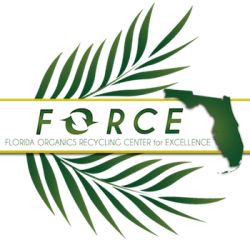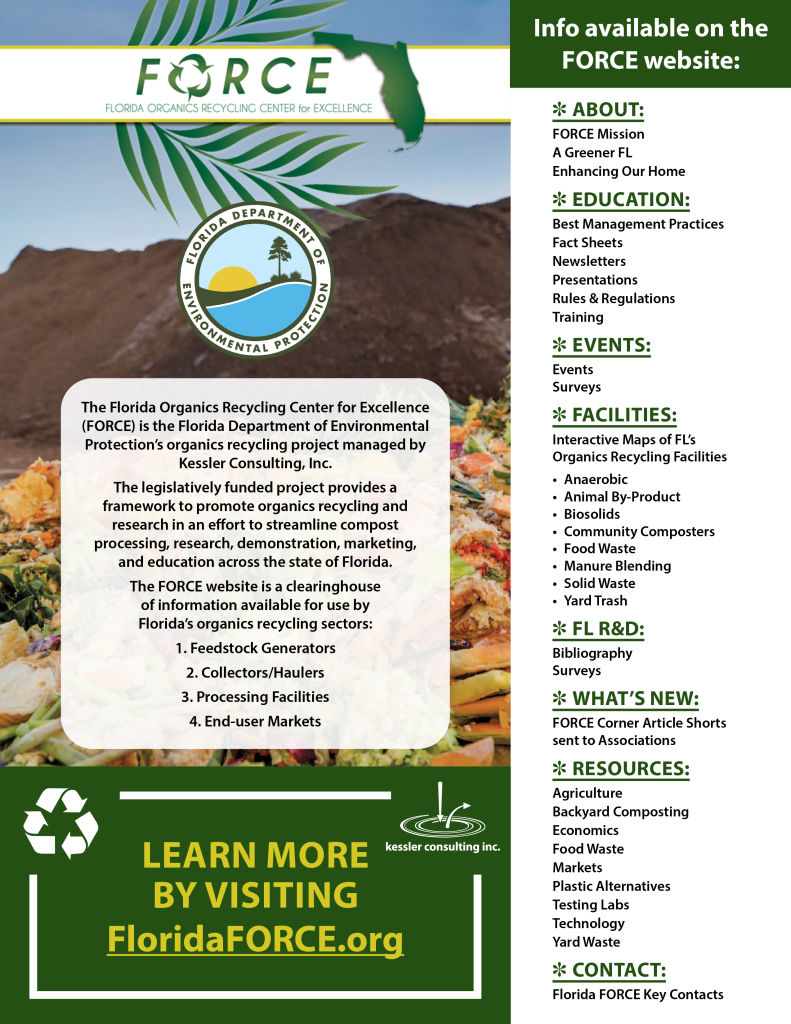The goal of the Food Waste and Yard Trash Composting Research and Demonstration Project was to encourage composting of food scraps and yard debris in Florida by documenting sound operational practices, evaluating costs and benefits, and assessing potential environmental impacts. Post-consumer food scraps and yard debris were composted at the Reedy Creek composting facility using simple, low-technology composting methods, such as outdoor, un-aerated windrows turned with a front-end loader. The project evaluated two different mix ratios (4:1 versus 3:1, yard debris-to-food scraps) and two different turning methods (standard turning to meet FDEP disinfection standards versus minimal turning).
Demonstration results concluded that adding food scraps to yard debris significantly enhances and accelerates the composting process. The project produced mature, high-quality compost in approximately four months. By comparison, producing such a product from yard debris alone in Florida can take as much as a year or more. Both composting methods met the FDEP pathogen reduction standard of less than 1,000 most probable number per gram (MPN/g) of fecal coliform, and finished compost met FDEP Class A classification standards for unrestricted distribution and use.
The cost-benefit assessment demonstrated that an existing yard debris facility can incorporate food scrap composting and cover the additional costs incurred. Two sources of revenue, tipping fees for incoming food scraps and sales of finished compost, will sufficiently cover costs, and even produce net revenue. The project also identified many guidelines that facilities should incorporate when composting food scraps and yard debris, in order to ensure environmentally-sound and cost effective operations, as well as high-quality product. Some of the guidelines developed included, feedstock selection, receiving and mixing, active composting and curing and post-processing.
The FDEP is in the process of revising the Chapter 62-709 composting rules to enable registration facilities to handle certain types of source-separated food scraps, in addition to yard debris – a common regulatory practice in many other states. The key is to ensure that such facilities are comparable to yard debris facilities currently operating under Florida’s facility registration process, with regard to environment and public health impact. Hopefully, the results of this project will assist FDEP in its efforts to promote a streamlined regulatory process for facilities that meet certain standards when composting yard debris and source-separated organics.

